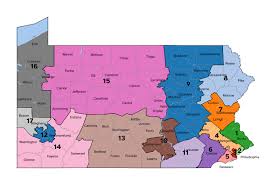Pubs: A Timeless Haven of Hospitality and Connection
When it comes to finding a place where friends gather, stories are shared, and the clink of glasses fills the air, few establishments can rival the charm and allure of a traditional pub. Pubs have long been an integral part of communities, serving as more than just a watering hole; they are a testament to the rich tapestry of human connection.
Originating in ancient times, pubs have evolved over centuries to become cultural institutions that transcend borders and languages. From the cozy taverns of Europe to the lively bars of America, each pub carries its own unique character while upholding a common mission: to provide an inviting space for people to relax, unwind, and forge lasting bonds.
At their core, pubs are places where strangers become friends and acquaintances turn into confidants. The friendly ambiance encourages conversation and camaraderie among patrons from all walks of life. Whether you’re a regular or a first-time visitor, stepping into a pub instantly makes you part of something larger – a vibrant community built on shared experiences.
One cannot discuss pubs without mentioning their role in fostering cultural heritage. Many pubs proudly embrace their historical roots, showcasing architectural details that hark back to bygone eras. In Ireland, for instance, you’ll find traditional Irish pubs adorned with weathered woodwork and cozy nooks that transport visitors to another time. These establishments pay homage to their country’s folklore and traditions through music sessions, storytelling nights, and even language lessons.
Beyond their cultural significance, pubs are also known for their culinary delights. From classic pub fare like fish and chips or hearty stews to gourmet creations prepared with local ingredients, these establishments cater to diverse palates. And let’s not forget about the impressive array of libations on offer – from craft beers and fine wines to carefully crafted cocktails that tantalize taste buds.
In addition to providing sustenance for the body and soul, pubs often serve as venues for entertainment. Live music performances, pub quizzes, and sports screenings create an electric atmosphere that keeps patrons coming back for more. These events not only entertain but also foster a sense of community spirit, where strangers cheer together, share laughter, and revel in the joy of shared experiences.
In recent times, pubs have faced challenges due to various factors such as changing social habits and economic pressures. However, their resilience shines through as they adapt to the needs of modern society while staying true to their roots. Many pubs now offer outdoor seating areas, live streaming of sports events, and even themed nights to cater to a wider audience.
As we navigate an increasingly digital world, pubs remain steadfast as physical spaces where people can unplug from screens and engage in genuine face-to-face interactions. They provide a respite from the hustle and bustle of everyday life – a place where time seems to slow down, allowing us to savor the simple pleasures of good company and lively conversation.
So next time you find yourself seeking solace or craving connection, consider stepping into a pub. Allow its warm embrace to envelop you as you immerse yourself in the rich tapestry of human connection that has been woven within its walls for centuries. Raise a glass with newfound friends or old companions and toast to the enduring legacy of pubs – timeless havens that remind us all of the importance of hospitality and genuine human connection.
Cheers!
Understanding Pubs: Answers to Common Questions
- What is the difference between a bar and a pub?
- What do people do in pubs?
- What is it called a pub?
- What are pubs short for?
What is the difference between a bar and a pub?
While the terms “bar” and “pub” are often used interchangeably, there are subtle differences that distinguish the two.
- Atmosphere: Generally, bars have a more vibrant and energetic atmosphere. They tend to be louder, with music playing in the background and a focus on socializing and entertainment. Pubs, on the other hand, typically have a more relaxed and cozy ambiance. They often feature comfortable seating areas, dim lighting, and a quieter setting that encourages conversation.
- Focus: Bars primarily revolve around serving alcoholic beverages. They may offer an extensive selection of drinks, including cocktails, spirits, and beers from various countries. Pubs also serve alcohol but place more emphasis on creating a welcoming social space where people can gather to enjoy good company and conversation. Pubs often showcase local beers or traditional drinks associated with their cultural heritage.
- Food: While both bars and pubs may offer food options, pubs tend to have a stronger focus on their culinary offerings. Pubs often serve hearty meals or traditional pub fare alongside their drink selection. In contrast, bars may provide lighter snacks or appetizers to complement the drinking experience.
- Cultural Context: The term “pub” is commonly associated with British or Irish establishments that have deep-rooted cultural significance within their communities. Pubs are known for preserving traditions such as live music sessions or storytelling nights that reflect their cultural heritage. Bars, on the other hand, are more universal in nature and can be found in various countries without specific cultural associations.
- Licensing: In some regions or jurisdictions, there may be legal distinctions between bars and pubs based on licensing requirements or regulations related to operating hours, alcohol service policies, or entertainment offerings. These distinctions can vary depending on local laws.
It’s important to note that these differences are not absolute rules but rather general observations that help differentiate between bars and pubs based on common characteristics. In practice, there can be overlap and variations between individual establishments, and the terms may be used interchangeably in certain contexts.
What do people do in pubs?
Pubs offer a diverse range of activities and experiences that cater to different preferences and interests. Here are some common activities that people engage in when visiting pubs:
- Socializing: Pubs are popular gathering places where friends, colleagues, and even strangers come together to socialize. Whether it’s catching up with old friends, meeting new people, or engaging in lively conversations with fellow patrons, pubs provide a relaxed and convivial atmosphere for fostering connections.
- Enjoying Food and Drinks: Pubs often have a menu featuring a variety of food options, ranging from traditional pub fare to more gourmet offerings. People visit pubs to savor delicious meals, share appetizers with friends, or indulge in comfort food. Of course, drinks play a central role in the pub experience as well. From local craft beers and fine wines to signature cocktails and spirits, pubs offer a wide selection of libations for patrons to enjoy responsibly.
- Watching Sports: Many pubs have large screens or dedicated areas where sports enthusiasts gather to watch live games or matches. Whether it’s cheering for a favorite team during the World Cup or enjoying the excitement of an important championship match, pubs create an electric atmosphere for sports fans to come together and share the thrill of victory (or commiserate in defeat).
- Listening to Live Music: Live music performances are a common feature in many pubs. These events showcase local talent or even established bands playing various genres such as rock, folk, jazz, or traditional Irish music. Pubs often become vibrant hubs for music lovers who appreciate the intimacy and authenticity of live performances.
- Participating in Pub Quizzes: Pub quizzes are trivia competitions held in pubs where teams compete against each other on general knowledge questions across different categories. These quizzes provide an entertaining way for patrons to test their knowledge while enjoying some friendly competition.
- Celebrating Special Occasions: Pubs are popular venues for celebrating birthdays, anniversaries, or other special occasions. Whether it’s a small gathering with close friends or a larger party, pubs provide a lively and inclusive atmosphere for marking milestones and creating lasting memories.
- Enjoying Pub Games: Some pubs offer traditional pub games like darts, billiards, or board games for patrons to enjoy. These games add an element of fun and friendly competition, allowing visitors to engage in casual entertainment while enjoying their drinks.
It’s important to note that the activities can vary depending on the pub’s location, cultural context, and individual preferences. Ultimately, pubs serve as versatile spaces where people can relax, unwind, and engage in activities that bring them joy and connection with others.
What is it called a pub?
The term “pub” is short for “public house.” It originated in the United Kingdom and Ireland, where establishments serving alcoholic beverages to the general public were referred to as public houses. Over time, the term “pub” became widely used to describe these social gathering places. Pubs are known for their relaxed and welcoming atmosphere, where people can socialize, enjoy drinks, and often partake in food and entertainment. The term “pub” has since been adopted in various countries around the world to refer to similar establishments that embody the spirit of community and conviviality.
What are pubs short for?
The word “pub” is short for “public house.” The term originated in the United Kingdom and refers to establishments that are licensed to serve alcoholic beverages for consumption on the premises.









